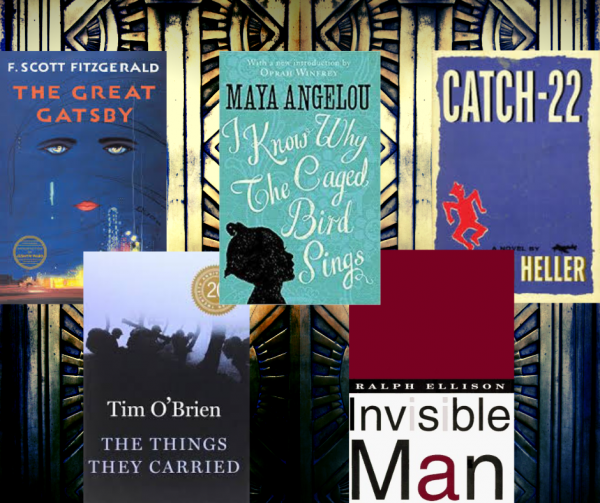
“Precluding students from reading literature with challenging themes and language deprives them of the opportunity to acquire empathy, critical thinking skills, and knowledge about lives different from their own — essential competencies that are necessary for success in college and in life.”
Letter to Matanuska-Susitna Borough School Board
Last week the Matanuska-Susitna Borough School Board voted 5 to 2 to remove a group of esteemed books from reading lists due to controversial aspects. CBLDF in collaboration with American Library Association’s Office for Intellectual Freedom penned a letter admonishing the decision and asking them to trust the educators who initially vetted and chose to include The Great Gatsby, I Know Why The Caged Bird Sings, Invisible Man, The Things They Carried, and Catch-22.
According to the The New York Times, the list of complaints included, “‘sexually explicit material’ and ‘anti-white’ messaging’ in I Know Why the Caged Bird Sings, Maya Angelou’s seminal memoir, and raised concerns about language and sexual references in The Great Gatsby,” among other complaints of works on the list mentioning “rape, incest, racial slurs, profanity and misogyny.” Board Vice President Jim Hart claimed that if he read a particular passage of Caged Bird aloud to his office, he would be “dragged” to the “equal opportunity office.” CBLDF’s letter also points out,
“The practice of guiding students in the study of award-winning literature is not within [EEOC’s] purview, nor is it within the purview of the courts, which protect the right to teach and read and consider ideas under the First Amendment.”
Hart’s attempt to cherry-pick a passage out of context is an all too common censorship tactic used to stoke shock and outrage without having real comprehension of the work. It operates under a faulty premise that literary works are nothing more than a string of isolated ideas and events; the courts have ruled that when evaluating art, it must be taken as a whole.
Since the decision, a school board member who voted to remove the books has taken to his own social media page to insist that nothing is banned, because the books are still available in libraries in the district, and students can pick them up and read them if they choose — albeit without the benefit of class discussion or teachers to help them parse these complicated themes the board was so worried about. This board member claims he voted to remove the books to allow parents to control what their children read, and put the onus back on the home and the parents for the formation of the child’s mind.
Parents are critical to deciding what their children read, but as CBLDF’s letter points out — there were already policies in place to handle this in their school district. From the letter,
“. . . once a book has been selected and approved by faculty members pursuant to the standards outlined in the district’s materials selection policy, any decision on whether to limit a student’s access to materials is most appropriately made by a student’s parents, who are best equipped to know and understand their child’s intellectual and emotional development. Indeed, Mat-Su’s policies already provide an alternative option for parents and students who object to these works — already designated as elective study — by allowing them to opt out and ask for an alternative assignment.”
Please read the entire letter below, and don’t forget to share if these books or other banned titles are important to you.